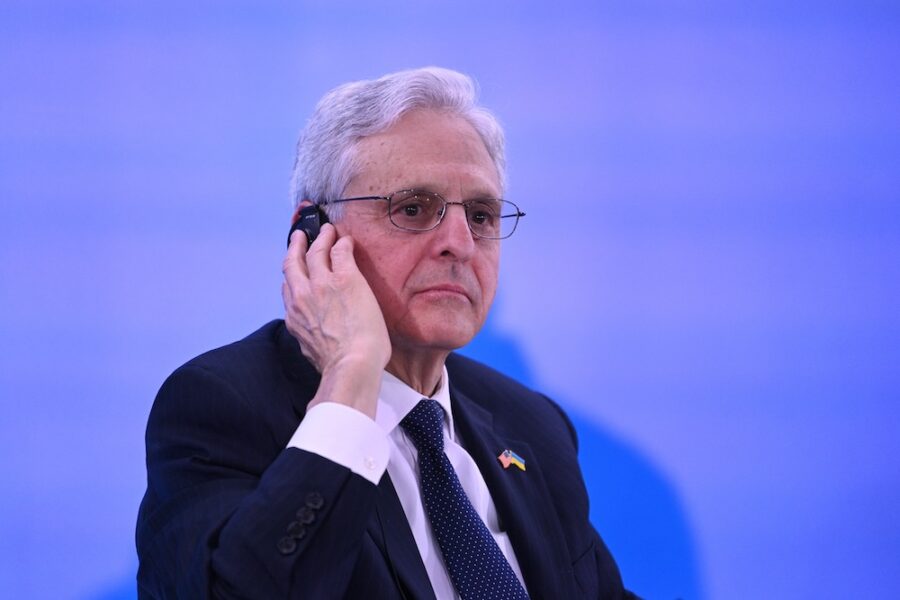Politics
NEW: Bombshell Docs Shine Light On Biden’s Targeting Of School Board Meetings

Explosive new documents obtained by America First Legal conclusively prove that former Attorney General Merrick Garland went out of his way to label parents at school board meetings as “domestic terrorists” and subject them to surveillance. While the Biden DOJ’s conduct has long been beyond dispute, Garland has claimed that the memo was part of his routine duties as attorney general.
In an infamous memo dated October 4, 2021, Garland instructed the FBI to form a task force in order to investigate “domestic terrorism” threats coming from concerned parents at school board. Nationwide outrage over the presence of far-left ideology in schools was prevalent at the time, with many parental rights in education groups forming to push back.
The National School Boards Association (NSBA), which represents school boards, sent a letter to President Joe Biden on September 29, 2021 requesting federal assistance to address alleged “threats and harassment” directed against school officials. The letter baselessly accused concerned parents of having links to “domestic terrorism,” at which point Garland penned the memo that instructed the FBI and U.S. Attorneys’ Offices to coordinate with local law enforcement to address “threats of violence” against school administrators, board members, and staff.
Garland has maintained that official Justice Department policy was followed in crafting the memo and responding to alleged “domestic terrorist” threats, though new documents obtained by America First Legal have put that assertion to bed.
“Tamarra Matthews-Johnson, a Counsel in the Office of the Attorney General, working directly for Attorney General Garland, forwarded the press clips of the day to Kevin Chambers of the Deputy Attorney General’s Office, saying, ‘Just checking that you were aware,’ referencing the NSBA letter,” AFL announced in a press release.
“We’re aware; the challenge here is finding a federal hook. But WH has been in touch about whether we can assist in some form or fashion,” Chambers replied about a half hour later.
The next morning, Sparkle Sooknanan, then of the Associate Attorney General’s Office emailed a group of attorneys from the Department’s Civil Rights Division requesting an over-the-weekend turnaround to identify “any authorities [the Civil Rights Division] enforces that could help address the issue.” Sooknanan currently serves as a district court judge.
Later that afternoon, a Civil Rights Division attorney was specifically asked if there was anything more she wanted to share with department leadership on this issue, to which she replied, “No, there is nothing specific or public I can share.”
Sooknanan was then informed that this was “the end of the line,” to which she replied, “Thanks very much, Pam. I’ll pass this on.”
On Sunday, a before Garland’s memo was published, another Civil Rights Division attorney expressed serious concerns with the DOJ taking any actions based on the NSBA memo. In an email, the attorney cautioned that there is no federal statute that could be used to prevent parents from exercising their First Amendment rights at school board meetings.
“It seems that we are ramping up an awful lot of federal manpower for what is currently a non-federal conduct,” they said.
These concerns were expressed directly to Robert Moossy, the Deputy Assistant Attorney General for Civil Rights, who had been specifically informed of the situation by Sooknanan earlier that day.
By the morning of October 4, a draft memo had already been completed. “At 9:12 a.m., Myesha Braden from the Office of the Deputy Attorney General emailed an ‘amended’ draft, which apparently removed language pertaining to election integrity, following concerns raised by the Criminal Division that election language ‘would be seen as partisan,'” America First Legal reported, citing additional emails.
Later that day, DOJ published the memo to the Federal Bureau of Investigation, U.S. Attorneys, and law enforcement agencies across the country.
“Despite numerous DOJ career attorneys independently raising serious concerns related to targeting parents and issuing a memo, ranging from a lack of statutory authority, to constitutionally protected speech, and a distortion by the NSBA of the facts on the ground, political leadership at DOJ—including now Judge Sparkle Sooknanan—pushed forward and published the now infamous Garland memo,” AFL wrote in the press release.
“As AFL has previously shown, this memo blindsided several of the components charged with implementing it, thus fulfilling AFL’s prediction that the “normal clearance process … [was] bypassed or corrupted. AG Garland’s memo mobilized the full force of the federal government’s firepower against concerned parents—not to protect schools, but to silence dissent.”

